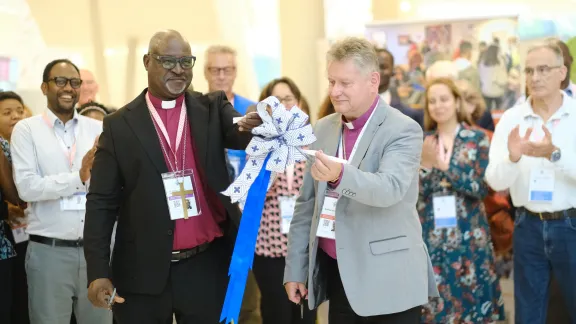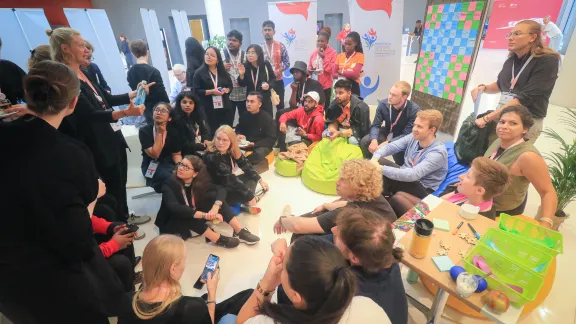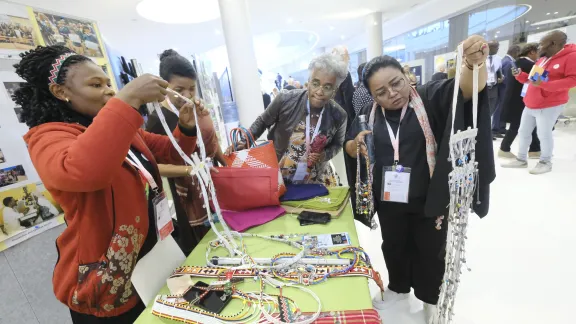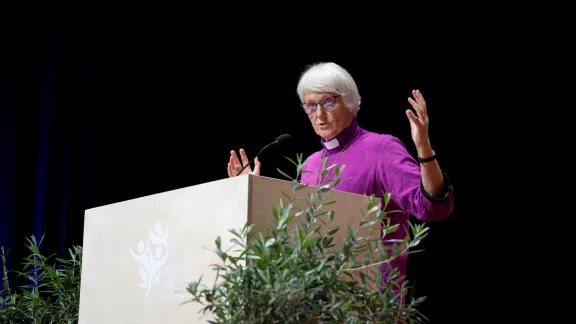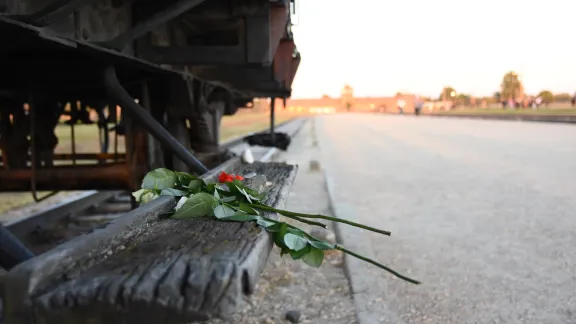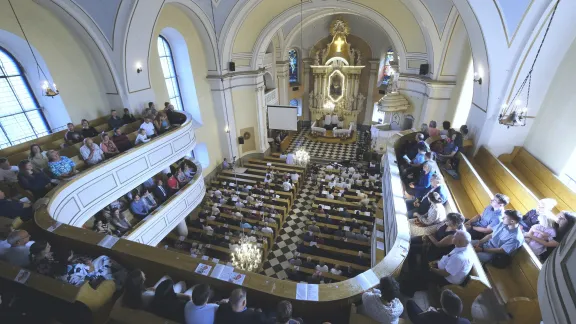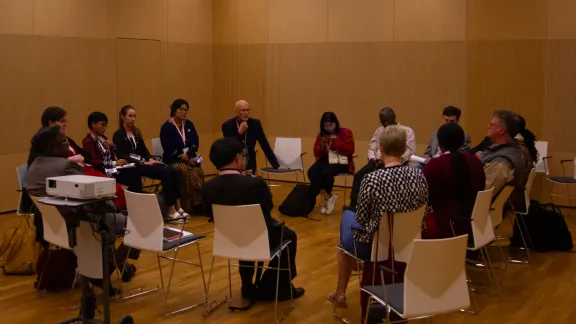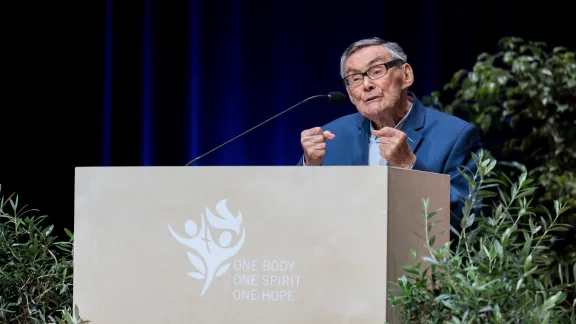16 SEP 2023
Delegates at Krakow Assembly elect Danish bishop known for his diaconal and ecumenical engagement
(LWI) - Danish Bishop Henrik Stubkjær has been elected as the new President of The Lutheran World Federation (LWF) to guide the global communion of churches over the coming years. A theologian, who is well known for his diaconal and ecumenical work, Stubkjær is currently serving as head of the diocese of Viborg in the Evangelical Lutheran Church in Denmark.
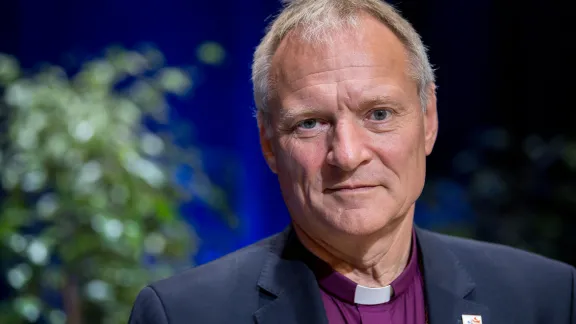
The Thirteenth Assembly has elected Danish Bishop Henrik Stubkjær as the new LWF President. Photo: LWF/Albin Hillert
Following his election on Saturday by delegates from around the globe attending the Thirteenth Assembly in Kraków, Poland, Stubkjær said the work of the LWF under his leadership will continue to be based on the four pillars upon which the organization was founded: “namely, to work for the needy and oppressed, common initiatives in mission, joint efforts in theology and a common response to the ecumenical challenge.”
I will see it as my responsibility to secure diversity and that all voices will be heard.
Newly elected LWF President Bishop Henrik Stubkjaer
The new president affirmed: “My vision for LWF is that we gain added value by working together as a communion striving to put Christian faith into action through humanitarian and development work, advocacy, shared witness and dialogue.” Noting that “to be Lutheran is to be contextualized,” he said the diversity to be found within different contexts is a sign of the way “God, through his Son Jesus Christ, is nurturing us as member churches [....] to preach the gospel in a relevant way.” Therefore, he added, “I will see it as my responsibility to secure diversity and that all voices will be heard.”
At the same time, he noted that “the world is being more polarized” and changing very rapidly. He quoted from Pope Francis’ words during the last visit of the LWF to the Vatican to sign an agreement for increased cooperation between LWF World Service and the Caritas Internationalis confederation of Catholic humanitarian agencies. Departing from his official text, the pope told the LWF leadership: “You should beware, that it is in times of changes, the Holy Spirit has the greatest opportunity [for] changing our minds.” In those words, Stubkjær added, is “the sign of hope” that Christian churches are called to be “in the midst of an often-hopeless world.”
Diaconal, ecumenical engagement
Prior to his election as bishop in 2014, Stubkjær served for almost a decade as secretary general of the Danish humanitarian organization DanChurchAid (DCA). Since the LWF Twelfth Assembly in Namibia, he has been a member of LWF’s governing Council, where he chairs its World Service committee and a member of its executive committee.
Stubkjær has held leadership roles in ACT Alliance. He also chairs an organization which supports homeless men in Denmark to help them overcome alcohol or drug addictions.
Alongside his passion for diaconal and humanitarian work, Stubkjær is renowned for his ecumenical engagement and his focus on theological education. From 2016 to 2019 he served as chair of the National Council of Churches in Denmark. Within the diocese of Viborg, he has encouraged the building of ties with Orthodox migrants from Eastern Europe, as well as with asylum seekers and people of other faiths.
Stubkjær will be formally installed, alongside members of the new Council, during the Assembly’s closing worship on Tuesday afternoon. The first meeting of the new Council under his leadership will take place the following day, 20 September.

